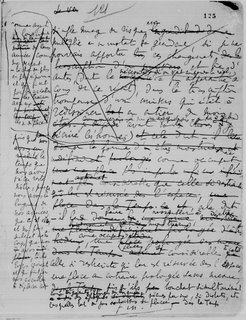From a New York Times article on signing off in e-mails:
Chad Troutwine, an entrepreneur in Malibu, Calif., was negotiating a commercial lease earlier this year for a building he owns in the Midwest. Though talks began well, they soon grew rocky. The telltale sign that things had truly devolved? The sign-offs on the e-mail exchanges with his prospective tenant.The Troutwine scenario seems tricky. If negotiations are breaking down, wouldn't "Warmest regards" likely sound snotty and sarcastic? And given the frequency with which e-mails fly back and forth, wouldn't even the best-intentioned correspondents soon weary of such repetition?
"As negotiations started to break down, the sign-offs started to get decidedly shorter and cooler," Mr. Troutwine recalled. "In the beginning it was like, 'I look forward to speaking with you soon' and 'Warmest regards,' and by the end it was just 'Best.'" The deal was eventually completed, but Mr. Troutwine still felt as if he had been snubbed.
What’s in an e-mail sign-off? A lot, apparently. Those final few words above your name are where relationships and hierarchies are established, and where what is written in the body of the message can be clarified or undermined. In the days before electronic communication, the formalities of a letter, either business or personal, were taught to every third-grader; sign-offs -- from “Sincerely” to “Yours truly” to “Love” -- came to mind without much effort.
But e-mail is a casual medium, and its conventions are scarcely a decade old. They are still evolving, often awkwardly.
I'm with Jason Kottke: I think that "Best" is entirely appropriate and courteous when writing to someone other than a friend or relation. "Best wishes" is good too. "Best regards" also seems appropriate. ("Regards" though sounds a bit remote.) "All the best" has long seemed strange to me, probably because I have a book signed by William S. Burroughs that wishes me exactly that. "Thanks" works well if you've made a request. Any variation on "See you next week" is always fine. "Cheers," which is fairly widespread in academia, seems to strike people as either perfectly all right or perfectly pretentious, so perhaps it's best avoided.
It's fascinating to watch the conventions of e-mail evolve. For now, I look forward to developing our acquaintance in the posts that follow.
Best,
Michael Leddy
"Yours Truly," the E-Variations (New York Times)
Related post
How to e-mail a professor




